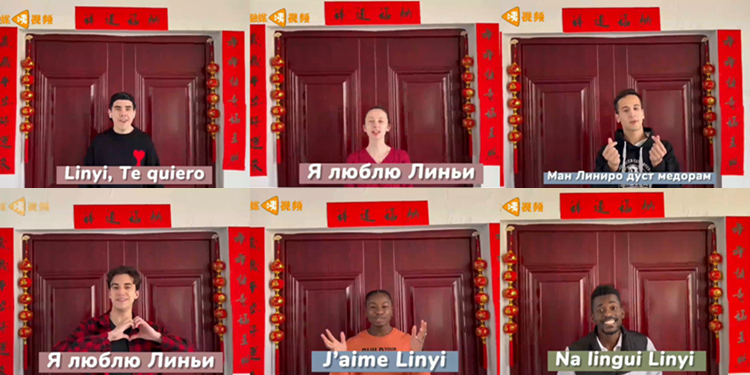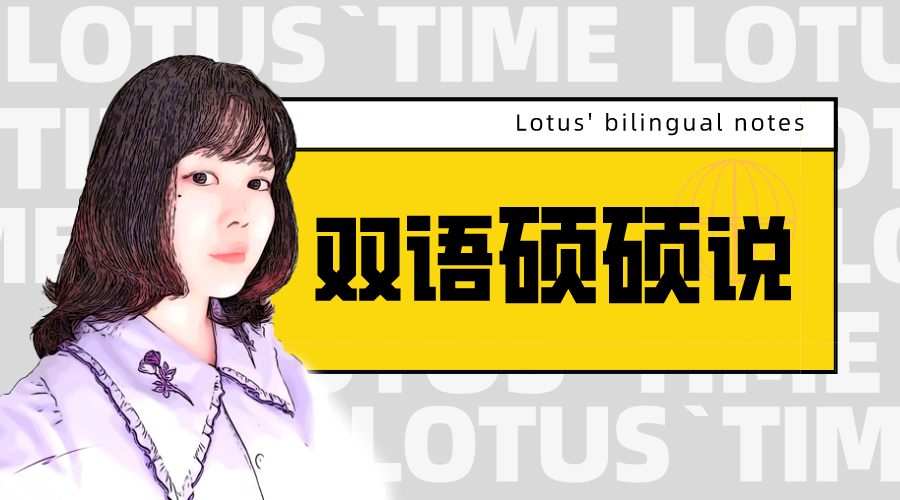双语硕硕说 | 清明节,more than Tomb-Sweeping Day


清明 The Mourning Day
【唐】杜牧 By Du Mu
清明时节雨纷纷,
A drizzling rain falls like tears on the Mourning Day;
路上行人欲断魂。
The mourner's heart is going to break on his way.
借问酒家何处有?
Where can a wineshop be found to drown his sad hours?
牧童遥指杏花村。
A cowherd points to a cot 'mid apricot flowers.
(许渊冲英译版)

在网络搜索还没有那么普及的学生时代,对于清明节,硕硕一直存有这样一个巨大的困惑:
与春节、中秋节、端午节一样,清明节是我们中华民族的传统节日,它的日期也和其他传统节日一样,是根据我们的传统历法农历来确定的;可是为什么其他传统节日对应的公历日期都不固定甚至每年都相差甚远,偏偏清明节对应的公历日期却一直固定在每年的4月4-6日呢?
见少识窄的那些年里,请教过很多人,听过很多道理,却依然没有彻底理解其中奥义。
直到有一天,硕硕get到清明节的英文译法需要分为两种——Tomb-Sweeping Day 和 Clear and Bright,恍然之间,仿佛给我暗示了一些思路。
今天,借此清明时节,我们就简单来聊聊,为什么清明节是Tomb-Sweeping Day也是Clear and Bright。

清明节,中国人的文化传统里唯一一个节日与节气并存的日子,既是我国重要的传统节日,又是二十四节气之一。
Qingming, also known as Tomb-Sweeping Day or Clear and Bright, is the only solar term whose first day is also a traditional Chinese festival.
二十四节气蕴含着悠久的文化内涵和历史积淀,是中华民族极具代表性的民俗事象、民俗系统。
As everyone knows in China that the traditional Chinese lunar calendar divides the year into 24 solar terms. Clear and Bright (Chinese: Qingming 清明), the 5th solar term, starts this year on Apr 4 and ends on Apr 19.
作为二十四节气之一的清明,顾名思义,“清洁明亮”,反映了先祖们对这个时节最直接的认知。清明时节,草木萌动,气清景明,万物皆显。
The words "clear" and "bright" describe the weather during this period. Temperatures begin to rise and rainfall increases, making it a crucial time for plowing and sowing in the spring.
作为传统的重大春祭节日,清明节承载着两大礼俗主题——扫墓祭祖与踏青郊游。这两大传统礼俗主题在中国自古传承,至今不辍。
As the name implies, the holiday is a period to pay respect to one's ancestors. People travel to the tombs of their family members to sweep the tombs, place offerings of food and drink as well as paper money.
所以,我们需要明确的是,作为节日的清明节和作为节气的清明节,它们的英文说法必然不同。
作为节日的清明节一般翻译为"Tomb-Sweeping Day",扫墓节或扫墓日。这种译法着重强调了清明节的重要习俗“扫墓”。这种说法的好处是,老外一听就能大概明白这个节日的背后含义。
作为节气的清明,它被译为"Clear and Bright",清洁和明亮。我们也不难发现,这种译法强调的是清明时节的气候状况,和其他节气的翻译出发点一致。比如立夏被译为"Summer begins"、小寒、大寒分别被译为"Slight cold"和"Great cold"。

提起清明节的起源,介子推和寒食节的故事大家早已耳熟能详,不妨试试阅读一下精简英文版:
At the very beginning, Qingming was only a name for one of the 24 solar terms, just like the others. It is not until its combination with the “Hanshi Festival” when it became a famous festive occasion.
The Hanshi Festival was designated to pay tribute to a loyal statesman Jie Zitui who lived during the Spring and Autumn Period (770-476 B.C.) and died in a fire. The Chinese people did not cook on the day of the Hanshi Festival and ate only cold food. The Tomb-Sweeping rituals were also derived from it.
作为礼敬祖先、慎终追远的一个文化传统节日,清明节凝聚着民族精神,传承了中华文明的祭祀文化,抒发人们尊祖敬宗、继志述事的道德情怀。随着历史传承发展,清明节杂糅了多地多种民俗为一体,具有极为丰富的文化内涵。接下来,硕硕就简要梳理一下最为常见的几项清明民俗。
扫墓祭祖
Worship ancestors and sweep tombs

清明节的主要习俗是扫墓。在这一天,人们都会前往他们的家族墓地进行拜祭。他们会铲除墓地周围的杂草,擦拭墓碑,以及用鲜花装饰墓碑。然后,放置贡品和烧纸钱。
The major custom in Qingming Festival is tomb sweeping. On this day, people visit their family graves to remove any underbrush that has grown. They would uproot weeds near the gravesites, wipe the tombstones and decorate the tombstones with fresh flowers. And then they will set out offerings of food and paper money.
踏青
Spring outing

清明节不仅仅是一个纪念故人的节日,人们也可以在这一天进行娱乐活动。在3月份,大自然焕然一新,树木变绿,花朵绽放,阳光普照。节日期间,大家可以好好地去感受一下自然的魅力。春游不仅能给生活带来愉悦,同时也可以促进身体和心灵的健康。
Not only it is a day for commemorating the dead, is it also a festival for people to enjoy themselves. During March, everything in nature takes on a new look, as trees turn green, flowers blossom, and the sun shines brightly. It is a fine time to go out and to appreciate the beautiful scenes of nature during the festival. Spring outings not only add joy to life but also promote a healthy body and mind.
插柳
Plug willow

因为介子推死的时候抱着一棵柳树,所以柳树被认为拥有一种可以对抗邪恶的神奇力量。清明时节,人们会将柳枝挂在门前,或拿柳枝进行扫墓。
Because Jie Zitui died embracing a willow tree, the willow is believed to have miraculous powers against evil. During the Qingming Festival, willow branches are hung on door fronts and used to sweep the tombs.
放风筝
Fly a kite

在清明节期间,许多人都喜欢放风筝,无论白天还是晚上。清明节放风筝的特别之处,是当风筝被放飞到高空时,人们会将风筝线剪段,让它自由飞翔,据说这样可以带来好运和消除疾病。
Flying kites is an activity favored by many people during the Qingming Festival. Kites are not only flown at day time but also in the evening. What makes flying kites during this festival special is that people cut the string while the kite is in the sky to let it fly free. It is said that this brings good luck and that diseases can be eliminated by doing this.
寒食节是在清明节的前一天,古人常把寒食节的活动延续到清明,久而久之,清明取代了寒食节,拜介子推的习俗也变成了清明扫墓的习俗。
无论以何种形式纪念,年轻一代学习介子推宁死不屈的气节、了解先人过去的奋斗历史、致敬和平年代为国为民献出生命的英雄,都会让这个节日更有意义。
文/ 硕硕
本端所刊登的临沂日报报业集团旗下媒体作品版权,均为临沂日报报业集团所属媒体及作者或页面内声明的版权人所有。未经临沂日报报业集团相应媒体授权,任何网站或组织不得以任何形式转载、复制、编辑或发布。违反上述声明者,临沂日报报业集团所属媒体将追究其相关法律责任。
不良信息举报电话:0539-8966978

